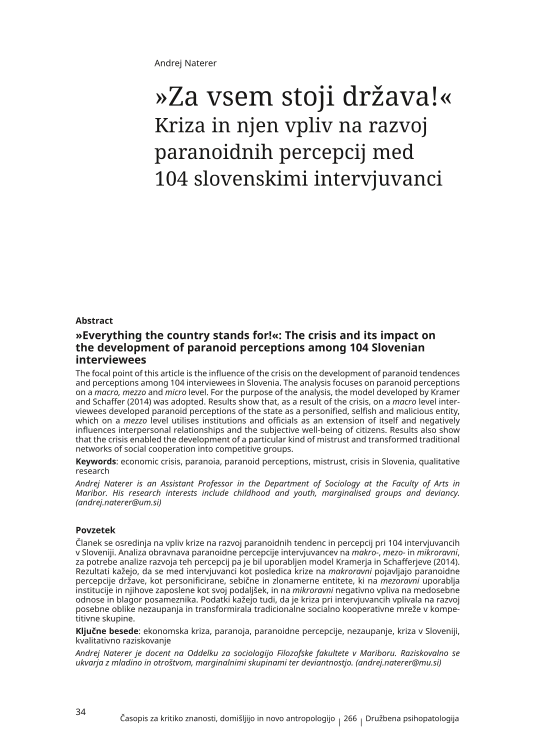The focal point of this article is the influence of the crisis on the development of paranoid tendences and perceptions among 104 interviewees in Slovenia. The analysis focuses on paranoid perceptions on a macro, mezzo and micro level. For the purpose of the analysis, the model developed by Kramer and Schaffer (2014) was adopted. Results show that, as a result of the crisis, on a macro level interviewees developed paranoid perceptions of the state as a personified, selfish and malicious entity, which on a mezzo level utilises institutions and officials as an extension of itself and negatively influences interpersonal relationships and the subjective well-being of citizens. Results also show that the crisis enabled the development of a particular kind of mistrust and transformed traditional networks of social cooperation into competitive groups.




